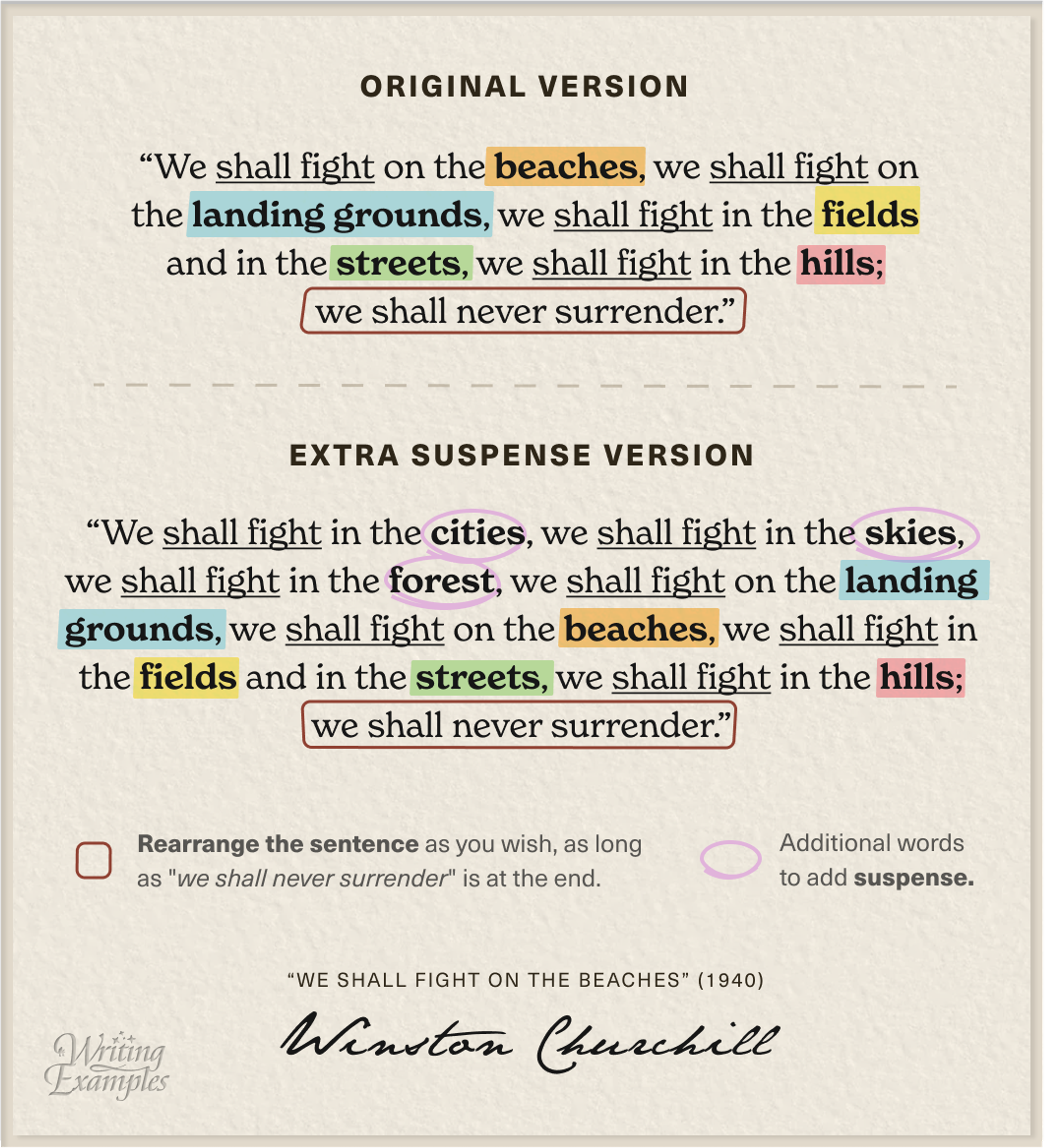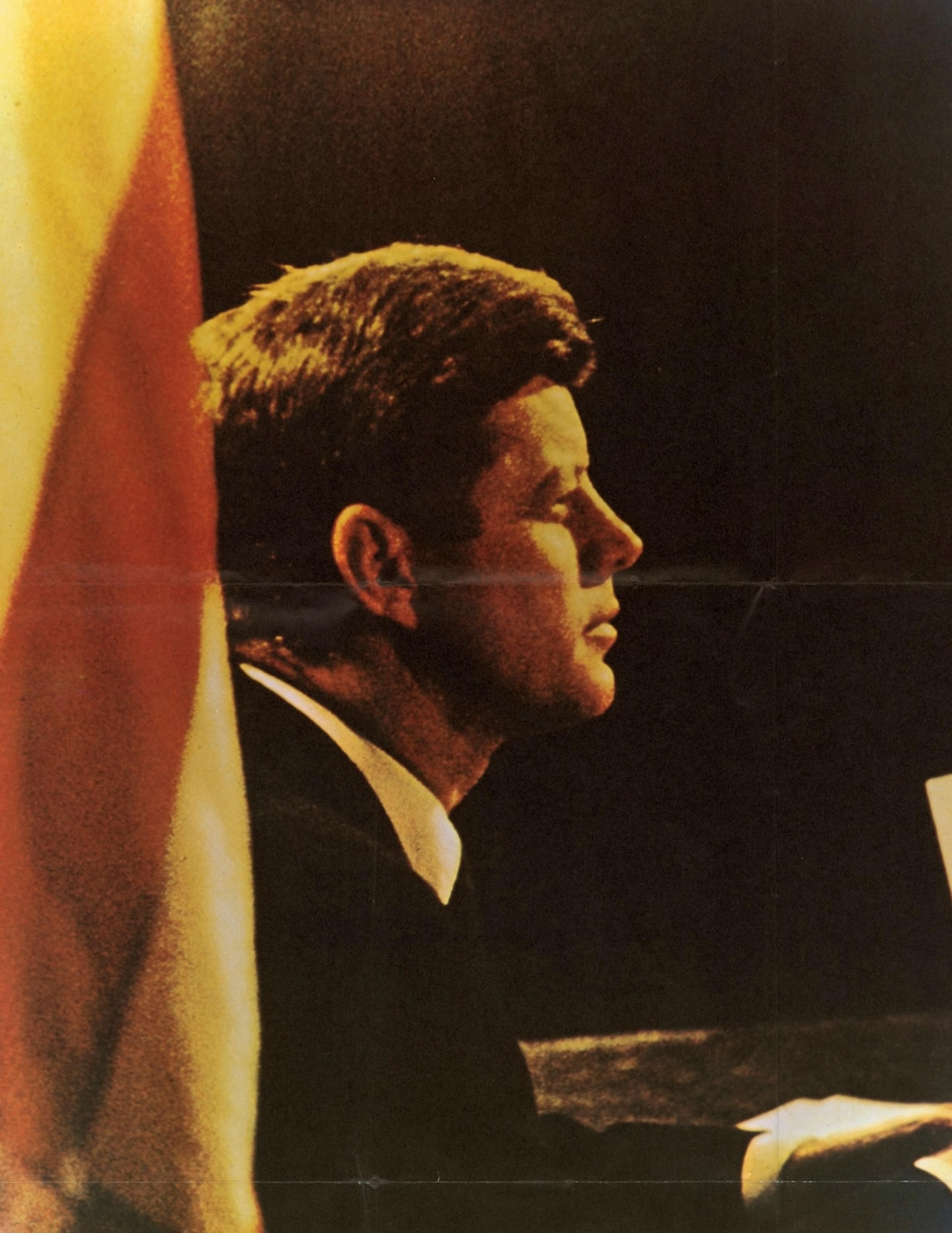
inston Churchill wasn’t just the Prime Minister of the United Kingdom. He was a prolific writer too. He wrote a novel, two biographies, memoirs, and of course… speeches.
He delivered this message at a critical moment during World War II. France was on the brink of collapse, Britain faced the threat of invasion, and Chuchill wanted to prepare the British soldiers for the long fight ahead of them. That meant defending the nation from Nazi Germany, no matter the cost.
Like a good battle plan, the structure of this sentence is simple and strategic. There are few moving parts, and there’s no mistaking the core themes here. Churchill drives the point home with repetition. He uses the word ‘fight’ four times, and proclaims that the British military will fight in five different places: beaches, landing grounds, fields, streets, and hills. Every word and every phrase builds up to his main point at the end: “We shall never surrender.”
That’s the content, but Churchill knows that rhetoric matters too. He wants to appeal to people’s hearts, and not just their minds. Writers these days are taught to only keep what’s necessary, but Churchill ignores that rule. Sure, he could’ve communicated the same information with only eight words: “We shall fight everywhere. We shall never surrender.” But that doesn’t have the same emotional weight, does it?
Instead, he used 31 words to build up to his main point. The volume and diversity of locations carry more weight than the literal meaning of each one, because it communicates a sense of all-out commitment.
In fact, he could’ve added suspense and placed even more emphasis on the word ‘fight’ by adding even more repetition, such as: “We shall fight in the cities, we shall fight in the skies, and we shall fight in the forest.” The order of the locations is immaterial. All that matters is that the main point — “we shall never surrender” — comes at the end. That’s because Churchill’s message isn’t structured like a logical argument. It’s a rally cry.
More repetition isn’t always better though. Repetition and efficiency are often in tension. The optimal balance between them depends on the context. Too much repetition, and you can lose your audience.
Churchill hit the sweet spot though. The lesson is that efficiency can get in the way of memorability, especially in speech-writing.
Want to go deeper?
- 01
- 02
Article
- 03
Read More
Write like the Greats
New Writing Examples, right in your inbox.
“Beautiful, playful, and high-quality. Kudos.”
Clayton
from Missouri, USA



